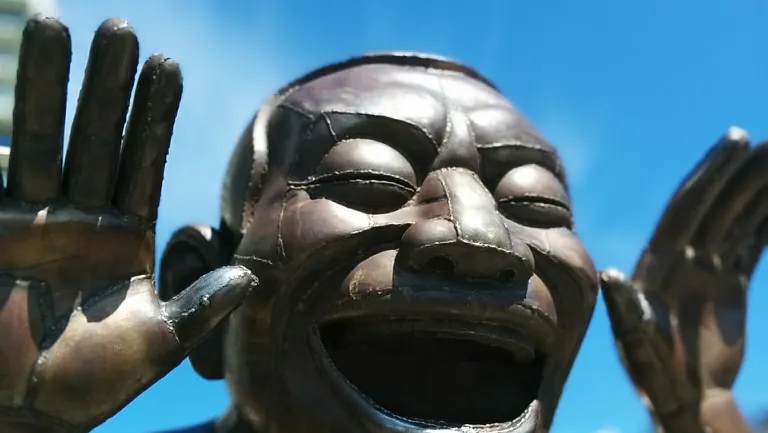When asked, most people report that they are good at showing empathy toward others. However, the skills of empathy can be observed and evaluated, and when we do that, we find that most people are not highly skilled in empathy. This is a common problem with complex skills: it's easy to think we're better at something than we actually are.
Empathy is one of the most complex skills of all. It involves immersion in the unpredictable, often chaotic, inner landscape of people. Nothing is more dynamic, multi-layered, and mysterious. Learning the skill of empathy is a journey that requires patience, self-awareness, and a host of other related skills. It's not just listening, or sympathizing.
To begin with, before we think about helping others, empathy first requires that we recognize the emotional undercurrents that shape our own behaviour. This is challenging for everyone; it requires us to notice what is happening in the moment and to manage our own internal feelings, histories, responses, biases, and reactions — all at the same time. Empathy begins with self-awareness and extends outward into our relationships and interactions.
When we become aware of our emotional reactions, we can better manage them, ensuring that we are not bringing our own unresolved feelings into our interactions. This is particularly important in emotionally charged situations, where reactivity can quickly escalate if we are not grounded. By regularly reflecting on our own emotional states and motivations, and by working on our own unresolved issues, we build the foundation for a more authentic and supportive presence with others. In this sense, the skills of empathy are primarily focused inward — on ourselves — rather than outward, toward our interactions with those we seek to assist.
Empathy is an active skill, not a passive state. One of the primary challenges we face in developing that skill lies in setting aside our judgments and preconceptions. People are constantly interpreting each other’s words and actions, often in ways shaped by our own past experiences, emotional wounds, and assumptions. This is a natural human tendency, but effective empathic practice requires that we move beyond these tendencies. We learn to be curious rather than judgmental, to recognize that another person’s experience is both unique and valid. Empathy asks us to withhold our instinct to analyze, question, or fix the other person’s emotions and instead to remain open, accepting, and present.
Another essential skill in empathy is congruence, which involves consistency in our actions, words, and intentions. People are highly attuned to the subtle cues of body language, tone of voice, and emotional expression; they can quickly detect (consciously or otherwise) when these signals lack alignment. In empathic practice, congruence means showing up in a way that genuinely reflects our intentions to listen and support. It means being mindful of our own emotional state and working to bring our words and behaviours into alignment with the supportive role we intend to offer. While at times excruciatingly difficult, this congruence is the only means by which we can build trust, which is a critical element in any healing journey.
Empathy is also inherently boundaried; it is not about merging our experiences with someone else’s or feeling overwhelmed by their emotions. Developing this skill requires that we balance openness with healthy boundaries; remaining present without being subsumed by another person’s pain — or being dismissive of it. This is especially crucial in situations where individuals are experiencing trauma, grief, or overwhelming stress. The concept of containment, which involves holding a stable space for others while managing our own reactions, becomes a central skill here. By practicing grounding techniques, breathwork, or mindful presence, we can maintain the emotional steadiness needed to offer genuine empathy without losing our own center.
Showing empathy toward another person without interjecting, advising, or trying to fix is one of the most challenging aspects of support. Often, people instinctively move toward offering solutions or making suggestions, which, while well-intentioned, can sometimes hinder the other person’s ability to process and express their feelings. Empathic listening is about allowing people to explore their thoughts and emotions without interference, helping them feel heard, seen, and respected.
In situations of deep emotional need, empathy becomes a supportive skill and a guiding principle for human connection. People experiencing intense emotions or trauma often feel isolated or disconnected. Empathy bridges that isolation, creating a space where they can feel understood without judgment. This connection can be profoundly healing, as it reaffirms the person’s worth and helps them feel less alone in their experience. In this way, we can help others find their way through emotional turbulence, offering a steady presence in moments when it may feel like everything else is uncertain.
Ultimately, learning empathy is a practice that requires humility, patience, and a willingness to engage with the complexity of human emotions. It is a skill that starts with ourselves—understanding and managing our own emotional responses, biases, and judgments—and extends to others as we offer genuine, congruent, and ethical support. The journey of empathy is ongoing; it is less about arriving at a final destination and more about cultivating an approach to relationships that honors each person’s unique emotional landscape. By committing to this practice, we can create spaces of belonging, safety, and connection where genuine connection and healing can flourish.
For information about workshops and training offered by Ross Laird, please visit this page or contact Ross directly.



